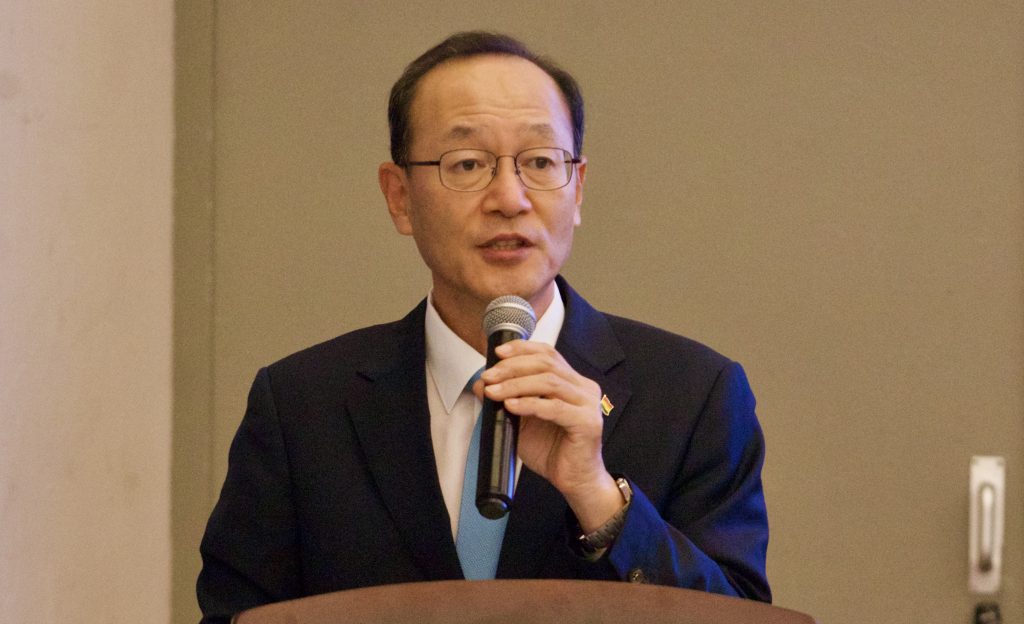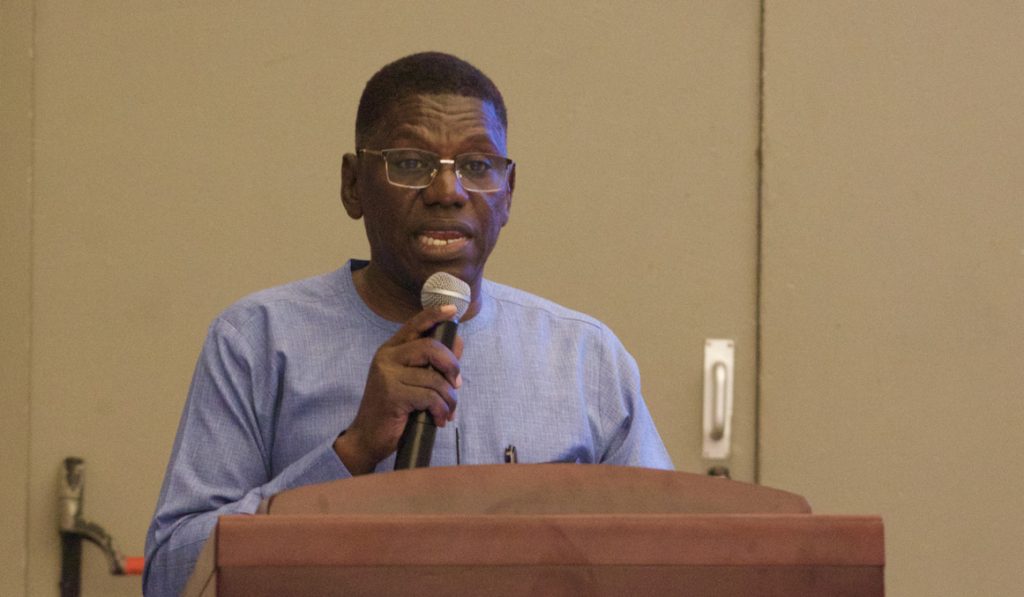By James Amoh Junior
Accra, Dec. 1 – A total of 146 Ghanaian healthcare professionals have been trained under the Dr. LEE Jong-wook Fellowship Programme of the Korea Foundation for International Healthcare (KOFIH), significantly enhancing the country’s healthcare system and fostering Ghana-Korea relations.
Since its inception in 2015, the programme has equipped Ghanaian health professionals with advanced skills and expertise to address critical challenges in healthcare delivery across the country.
KOFIH has been actively involved in various projects over the past decade, since beginning its partnership with Ghana in 2013.
These projects include maternal and child health initiatives, medical device management, rehabilitation programmes for children with disabilities, strengthening laparoscopic surgery
capabilities, and organizing invitational training programme like the Dr LEE Jong-Wook Fellowship programme in Korea for healthcare professionals.
The Dr. LEE Jong-wook Fellowship Programme, named after the late South Korean public health advocate, offers training in specialized areas such as health financing, biomedical engineering, infectious diseases, and leadership.
There are eight courses in the LJW programme, including Health Financing, Health Policy and Administration, Biomedical Engineering, Infectious Disease (Epidemiology, Clinical Diagnosis and Treatment, Laboratory Diagnosis and Research), Clinical Experts, Leadership, and Master’s degree support programmes.
Since its establishment, it has played a vital role in enhancing healthcare delivery and addressing gaps in professional capacity in Ghana.

In addition to individual skill development, it has fostered knowledge sharing and collaboration between Ghanaian and South Korean healthcare experts.
Mr Park Kyongsig, Ambassador of Korea to Ghana, speaking at the 2024 Annual General Assembly of the KOFIH Global Alumni (KGA) in Accra, praised the alumni for their dedication and contributions to the healthcare sector in Ghana.
The KGA, formed in 2021 as a network of the programme’s alumni, has emerged as a dynamic platform for collaboration, innovation, and impactful healthcare initiatives.
Addressing the assembly, Mr Kyongsig reaffirmed Korea’s commitment to Ghana’s healthcare development, saying, “You, the alumni, are a vital link between Korea and Ghana. Your expertise and dedication continue to uphold the values of the fellowship and drive progress toward universal health coverage.”
He further commended the alumni for their role in implementing innovative healthcare solutions and advancing equitable healthcare systems.
Dr LEE Jong-wook’s legacy, he observed, continued to inspire as his vision of equitable and accessible healthcare resonated deeply.
“With the strong partnership between our nations. Korea remains committed to supporting Ghana in advancing healthcare systems, and I am proud that the Embassy plays a role in strengthening this partnership,” Amb Kyongsig said.

Speaking on behalf of Ghana’s Minister of Health, Dr. Bernard Okoe-Boye, the Director of External Health Cooperation, Dr. Hafez Adam Taher, commended KOFIH’s efforts in strengthening healthcare systems through capacity building.
He noted that the fellowship programme had empowered Ghanaian professionals to make significant contributions to healthcare and reinforced the bond between Ghana and South Korea.
“This initiative has had a profound impact not only on individuals but also on the overall delivery of healthcare services across Ghana. The alumni are true champions of change,” Dr. Taher remarked.
Dr. Taher highlighted the broader partnership between Ghana and KOFIH, which extended beyond the fellowship programme as over the past decade, KOFIH had supported maternal and child health programmes, rehabilitation services for children with disabilities, and advanced surgical training.
He reaffirmed the Ministry of Health’s commitment to supporting KOFIH initiatives and called on alumni to continue driving change through innovation and leadership.
Dr. Ralph Armah, KGA President, outlined the association’s upcoming projects, which include a blood donation campaign to address critical shortages, clinical outreach programmes to provide free medical screenings and surgical interventions, and efforts to improve the maintenance and lifespan of medical equipment in underserved regions.
“Our activities are designed to ensure no community is left behind,” he explained, and emphasized the importance of sustainability and collaboration in achieving these goals.
Dr. Armah, also the Medical Director of the Ridge Hospital, said another key initiative focused on biomedical engineering, with the goal of improving the functionality and longevity of medical equipment in deprived areas by training hospital staff in proper usage and maintenance.
GNA